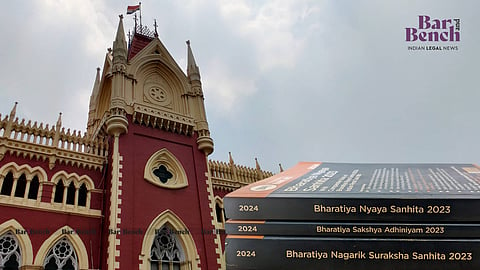
- News
- Columns
- Interviews
- Law Firms
- Apprentice Lawyer
- Legal Jobs
- हिंदी
- ಕನ್ನಡ

The Calcutta High Court on Friday observed that no lawyer can be forced to stop work and participate in a lawyers' strike recently called for by the West Bengal Bar Council to protest against the implementation of the three new criminal laws on July 1 [Sahasrganshu Bhattacharjee v. Bar Council of West Bengal and Others].